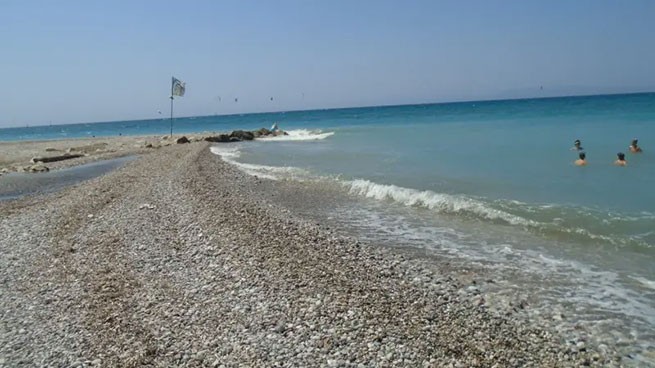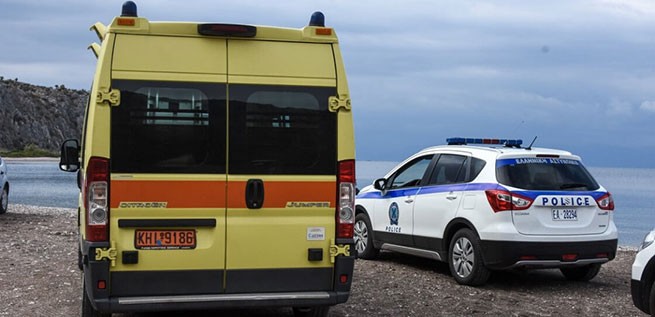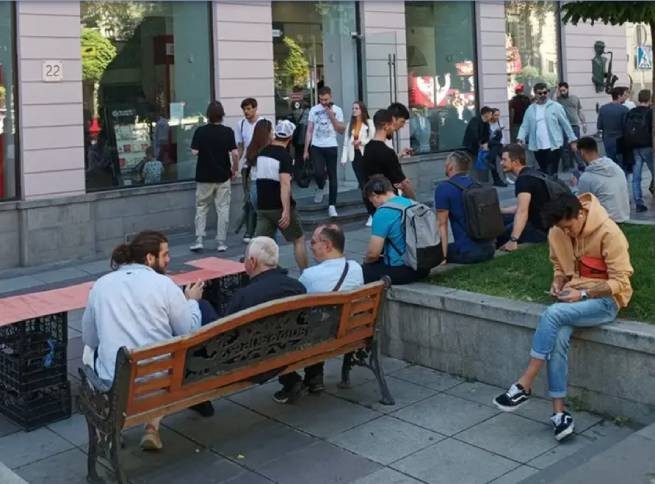New migrants from the Russian Federation, as German sociologists ZOiS have discovered, have serious differences in their political views.
Russian new migrants
Surveys conducted in five countries revealed that migrants from the Russian Federation are a very heterogeneous community. Of the 800,000 to 900,000 Russian citizens who left their homeland in the months following Russia's invasion of Ukraine in February 2022, experts estimate that approximately 650,000 now remain abroad.
This is a fairly mobile group – some have already left their original country of residence, others have not decided how long they will stay abroad, where the conditions of stay are sometimes difficult for them.
The latest report from the Berlin-based Centre for East European and International Studies, by Felix Krawaczek and Gwendolyn Sasse, examines political views new Russian migrants who live in Georgia, Armenia, Turkey, Kazakhstan and Kyrgyzstan.
The survey involved approximately 1,000 respondents in Armenia, Georgia and Turkey, and 600 in Kyrgyzstan and Kazakhstan. The study is based on personal interviews with 4,300 Russians who left the country – both after February 2022 and earlier. The survey was conducted in the summer of 2023. DW tells about its main results.
The authors of the report note that there is a tendency to “view new emigrants from Russia as potential opposition in exile.” Some of them are genuinely involved in opposition or anti-war activities, others openly support the Kremlin, and others prefer to remain silent.
A significant portion of those who left Russia immediately after its invasion of Ukraine can certainly be classified as opponents of the war and the Kremlin, but this applies to a much lesser extent to subsequent waves of migration, ZOiS staff say. And it is still unclear whether the more opposition-minded Russian migrants will remain politically active abroad.
The report says that new migrants are a heterogeneous group both overall and in each individual host country. Felix Krawaczek stresses that they “should not be seen as a single group, especially in the sense of the large exodus of liberals (from Russia).” The study found “a wide range of political views and socioeconomic characteristics among new migrants,” and large differences in their assessments of Russia's war with Ukraine.
Given this diversity, ZOiS believes, “it seems unlikely that migrants will unite around a new overarching idea uniting Russians abroad.” But they do not rule out the possibility that a common sense of identity could emerge, linked to specific places of residence and experience. At the same time, different countries attract different groups of Russian migrants – with noticeable differences in age, level of education, sphere of employment and previous place of residence.
Armenia has favorable conditions for political actions
Georgia and Armenia, as the study showed, account for a large share of young and educated migrants. Most of them came from St. Petersburg and Moscow, they are employed in the IT sector. A significant number of them have opposition views and have previously participated in protests in Russia.
According to official data, there are approximately 100 thousand Russians in Armenia. Most respondents believe that Russian citizens abroad should protest against their governments as well. The respondents here have a stronger sense of responsibility for the political future of the Russian Federation (more than 30% indicated this) than migrants in other countries where the study was conducted. The report notes that Yerevan currently “offers comparatively more favorable conditions for political actions directed against Russia.”
Russians who have recently settled in Armenia “have many prerequisites for political mobilization,” but its prospects will most likely depend on Yerevan's geopolitical positioning.
Georgia: Most respondents have negative attitudes toward the president, the army and the war in Ukraine
There are 74 thousand Russians living in Georgia, they are also highly politicized and have no doubts about who is responsible for Russia’s war with Ukraine: two-thirds blame the Russian Federation, regardless of whether they arrived in Georgia before or after February 2022.
The report notes that migrants' environment is important when deciding whether to remain politically active. However, “the social and political context in Georgia, where Russians are viewed with suspicion,” especially young people, limits their opportunities for political action. Although many Russian migrants share “the anti-Russian sentiments prevalent in Georgian society, mutual alienation makes any joint action unlikely.”
For now, the sociologists write, “the atmosphere in the country appears to be having a demobilizing effect” on Russian migrants – some locals are also angry that the new migrants are driving up inflation. It is possible that “the experience of hostility or discrimination may also mobilize a common group identity, but there is little evidence of this type of politicization at the moment.” It seems more likely that “the level of politicization of new Russian migrants in Georgia will decline as they seek an apolitical niche or consider moving,” ZOiS predicts.
;
Türkiye: a country of Russian migrants
At the beginning of 2024, approximately 180 thousand Russian citizens had a residence permit in Turkey. The diversity of political views among new Russian migrants in the country is striking, but there is a pronounced pro-Kremlin trend, sociologists say. When asked who is responsible for starting the war in Ukraine, local respondents were divided:
- About 40% – mostly the youngest (18-24 years old) and those who arrived after February 2022 – blame Russia.
- About 60%, mostly people aged 35 and over, blame the United States, Ukraine and Western institutions (NATO, EU).
A significant portion of respondents have a fairly favorable attitude toward the Russian president and the army, and a negative attitude toward Western institutionswrite ZOiS experts:
“The repressive political context in Turkey certainly does not encourage political mobilization or a sense of political responsibility among immigrants for events in Russia and Ukraine. When asked about this, Russian citizens in Turkey typically state that they do not feel responsible for the political future of the Russian Federation (more than half). The vast majority of respondents believe that Russians abroad should not protest against the war.”
Kazakhstan: Russian migrants distance themselves from war
Sample in Kazakhstan, where there are about 100 thousand new emigrants from the Russian Federation, includes people mainly from large provincial cities, with an average lower level of education and, as a rule, working in construction and trade. Most of the Russians who arrived there “do not differ in their political views from the bulk of Russian society.”
As noted in the report, respondents' opinions of the Russian president and army are quite positive, while they see the Ukrainian president or Western institutions such as NATO or the EU in a more negative light. The blame for the war is placed more on the US and Ukraine than on Russia:
“They have been socialized into the Russian state narrative and want to have as little to do with the war as possible. A clear majority feel no responsibility for Russia's political future, and about two-thirds see no need for Russians abroad to protest.”
Kyrgyzstan chosen by the youngest migrants from Russia
170,000 Russians registered in Kyrgyzstan in the first nine months of 2022 alone. The profile of those surveyed by ZOiS is very diverse, with a high proportion of those employed in the IT sector. Respondents in this country were, on average, among the youngest of the five countries. German sociologists say:
“They appear to be quite politicized, with most reporting experience of protests at home and claiming to have followed the events of the war against Ukraine, at least initially.”
Sociologists believe it is unlikely that the political interest of migrants “will find an outlet in the media space, where Kyrgyz media are heavily influenced by propaganda, and Russian media enjoy a reputational advantage over Western media.” When asked who they blame for the war, about 50% of respondents in Kyrgyzstan named Russia, about 20% – the United States, almost 15% – Ukraine, and 15% did not answer the question (“possibly due to fear or uncertainty”).
According to the authors of the report, “both old and new Russian migrants remain the main target of propaganda, and many of them remain immersed in the Russian media environment.”







More Stories
The New York Times shared details of the pager operation
Ukrainian Diaspora Abroad
Predator Scandal: US Sanctions Greek Intellexa Employees